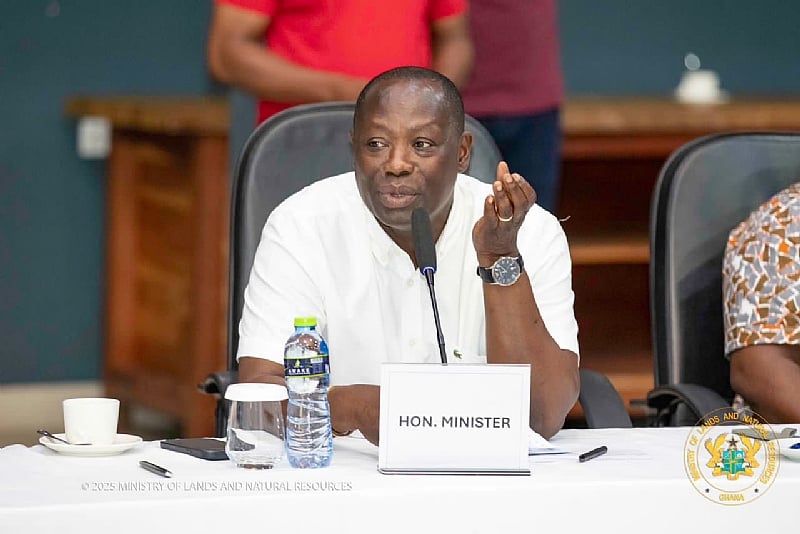Ghana’s land administration system, long plagued by inefficiencies and public discontent, is on the cusp of a significant transformation. Minister for Lands and Natural Resources, Emmanuel Armah-Kofi Buah, has issued a decisive directive mandating the Lands Commission to decentralize its operations within two months. This bold move aims to address the chronic difficulties citizens face in accessing essential land services, often requiring arduous and costly journeys to regional capitals. The Minister underscored the critical importance of land as a national asset and emphasized the urgency of making these services readily available to all Ghanaians, regardless of their location. This decentralization initiative is not merely a logistical adjustment; it represents a fundamental shift in the philosophy of land administration, prioritizing citizen access and restoring public trust in the system. The Minister’s vision is to create a more equitable and efficient system that fosters confidence in the Commission’s ability to manage land resources fairly and effectively.
The Minister has placed the responsibility for implementing this ambitious plan squarely on the shoulders of the newly appointed Acting Executive Secretary, Professor Anthony Owusu-Ansah. Professor Owusu-Ansah has been tasked with overseeing the rapid upgrade of district-level offices to equip them with the capacity to deliver core land services. This includes ensuring that these offices can handle land registration, titling processes, and provide mechanisms for resolving land disputes, all within their respective districts. This localized approach will eliminate the need for citizens to travel long distances to access these essential services, saving them time, money, and considerable inconvenience. The success of this decentralization effort hinges on the effective empowerment of these local offices and the provision of adequate resources and training to ensure consistent and high-quality service delivery.
Professor Owusu-Ansah has embraced the challenge and expressed his commitment to realizing the Minister’s vision. He has pledged to prioritize prompt and professional land services for all Ghanaians, irrespective of their geographical location. This commitment signifies a crucial shift towards a more citizen-centric approach to land administration, recognizing the fundamental right of all citizens to easy and equitable access to land services. The decentralization initiative is envisioned as the first step in a broader process of rebuilding the Lands Commission’s reputation as a responsive and people-centered institution. By prioritizing accessibility and efficiency, the Commission aims to regain public trust and establish itself as a reliable and effective steward of Ghana’s land resources.
The Minister’s directive and Professor Owusu-Ansah’s commitment represent a potential turning point for land administration in Ghana. This initiative places service delivery and citizen access at the forefront of the land management agenda, signaling a departure from the centralized, often cumbersome, systems of the past. The success of this decentralization effort will depend on several factors, including adequate resource allocation, effective training of local staff, and the establishment of clear performance metrics to ensure accountability and transparency. Furthermore, ongoing monitoring and evaluation will be crucial to identify and address any challenges that may arise during the implementation process.
The potential benefits of a decentralized land administration system are significant. Improved access to land services is expected to stimulate economic activity, particularly in rural areas, by facilitating land transactions and promoting secure land tenure. This, in turn, can contribute to poverty reduction and overall economic development. Furthermore, a more efficient and transparent land administration system can help reduce land disputes, which often lead to protracted legal battles and social unrest. By providing accessible mechanisms for dispute resolution at the local level, the decentralization initiative can contribute to greater social harmony and stability.
The successful implementation of this decentralization initiative could have far-reaching implications for Ghana’s development trajectory. It could serve as a model for other sectors seeking to improve service delivery and empower local communities. By placing citizens at the center of land administration, Ghana is taking a significant step towards building a more equitable and prosperous future. This bold move signals a commitment to transparency, efficiency, and responsiveness in the management of one of the country’s most valuable resources, paving the way for a more just and sustainable land governance system.














